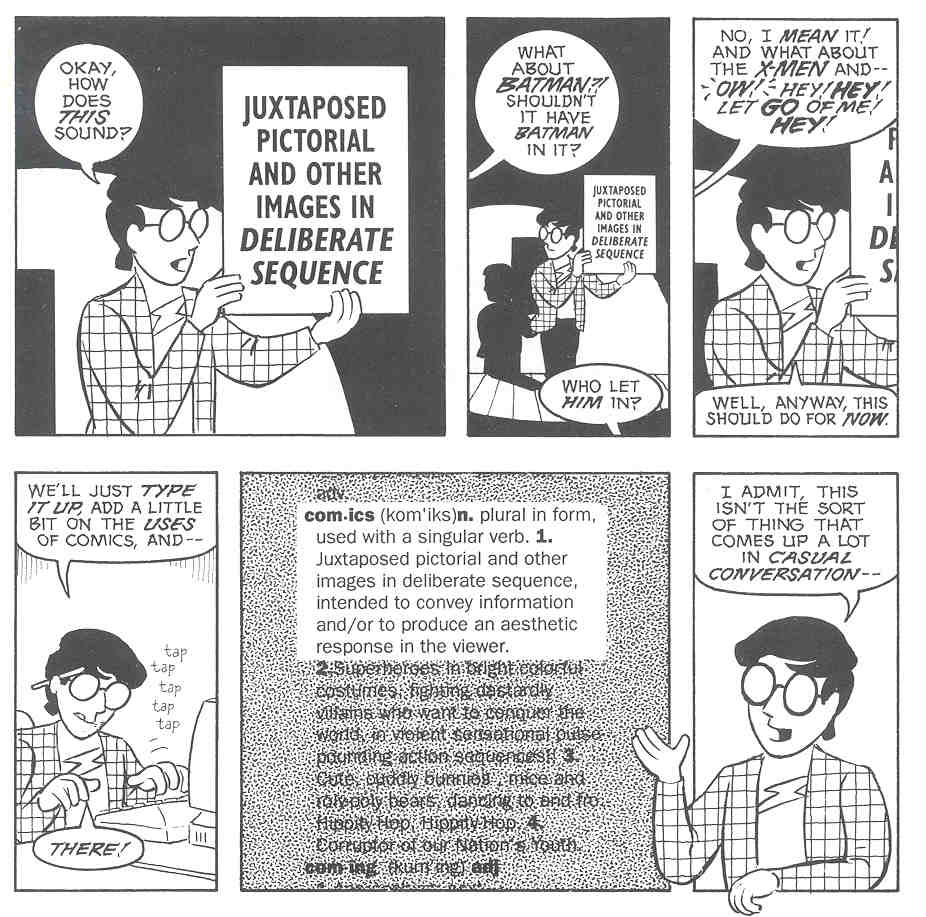What Makes a Comic: What's in a Name?
 |
| From Understanding Comics by Scott McCloud |
I'm going to take a break from analyzing comic book action scenes and ramble a bit about the medium itself. Firstly, although I adore the art-form, I have always struggled with the word "comics." It's irritating to use in any academic sense. In America, the term originated due to the first comics developing out of comic strips. The first comic books were literally pages of funny papers stapled together. However, the term "comic" usually connotes something funny happening, and the medium does so much more than that. Basically, one particular genre represents an entire method of artwork. It would be like calling television something like "teletragedy" and having the name stick. The term also creates some confusing situations when used to talk about particular parts of the medium. If I say "popular comic," I could be referring to a comic book or a comedian. Thus, we have to use the plural of "comic" to refer to the art-form. Spider-Man is a character in the comics or a comic book character. I cannot say that Spider-Man is a comic character without invoking the meaning of comedy.
Other terms carry their own problems. "Comic book" still has the comedy connotations mentioned earlier combined with the fact that comic books are not really books, but rather magazines. Actual book length comics are called "graphic novels." Comic books are often not funny, and neither are they books. We could call them graphic art magazines, except that would mean that they now sound like porn. The word "graphic" contains a slew of problematic definitions that would also basically define this art-form along along lines that overwhelm the capacity of the medium with myopic imagery. "Picture book" also doesn't work, as that word denotes children's literature. "Art-book" does not convey what comics do with how they use art to convey meaning and narrative.
Critics such as Scott McCloud settle for the term "sequential art," which does a good job for addressing the technical aspects of the medium, but the term almost feels scientifically sanitized. Would you buy a sequential art book? It sounds like a good coffee table addition but not something that would energize the masses like comic books do today.
I suppose that I don't really hate the word "comics" to refer to my favorite medium for disseminating art and storytelling, but I do wish that the term would not forever be shackled to the shadow of comedy. It is harder to take an art-form seriously when it just sounds silly. Although comic book magazines are often artifacts of popular culture and not traditional high-art, the medium itself, like any other (print, television, radio, film, etc.), is capable of anything that can fit into its unique form. Largely, however, it still seems like the word "comics" acts like a shackle that weighs this entire form of signification down.

Comments
Post a Comment